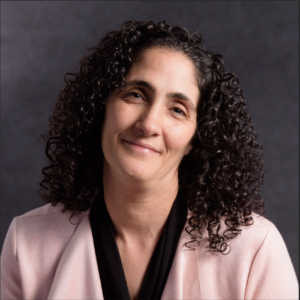
Business as Unusual
At first blush, the rest of the world’s shift to virtual learning in March seemed immaterial to our constituents who are in a heavily online MA in Jewish Education. We are lucky to boast well-trained and experienced online faculty and, perhaps even more important, students who are whizzes with Zoom, Schoology, and an array of online educational tools. Our people are at home in their virtual academic community. They already knew to mute themselves when not speaking in a teleconference, so we were really ahead of the game! Honestly, we felt immune to the whiplash others were experiencing with the very abrupt shift to online teaching and learning.
And yet, ‘business as usual’ has been very UNusual. As a parent of three myself, I was quick to recognize the double demands that would be placed on working parents. This affects both our faculty and student body, many of whom are caring for young children and/or aging parents while working full-time in Jewish education. With childcare centers closed and many dual-career families trying to work remotely, this complexity appeared on our radar quickly.
A few weeks after moving all courses online, we announced that Hebrew College would not be holding an in-person graduation in June. Especially for distance students, who cannot wait to finally bring their families to campus, hug their classmates and teachers, and wear a cap and gown to symbolize all that they have invested in their degrees, this was a huge blow. And now, we have gone from a trickle to a steadier flow of job losses, furloughs, and professional uncertainty. For the soon-to-be-graduates, many have gone from looking at the many pathways forward for their careers to worrying about their next paycheck in their current role.
Even though our students are well-versed in learning online and forging and maintaining deep relationships over Zoom and FaceTime, this experience has been difficult. And so, I imagine for those faculty and students for whom virtual learning is new, and are experiencing the same stressors and uncertainties as I’ve described, this experience is multi-layered and fraught. With that in mind, I’d like to share my approach to graduate education, which builds on what I’ve learned over a decade-plus teaching virtually and adapts it for the moment at hand.
- • Focus first on the ‘extracurricular.’ With so much uncertainty and added stress in their personal and professional lives, students need to use the reflective space of the classroom to process their experiences—and to channel them into future material for growth. To my mind, this now trumps any other course objective. Once grounded and feeling seen (and this must happen repeatedly throughout the crisis), students will have greater capacity to engage in the material and hopefully reach many of the original course objectives. Do this by creating distinct spaces and times for processing and opportunities to grieve for whatever feels lost—this may be one-to-ones with faculty, a discussion board set aside for this purpose only, and/or facilitated/recurring peer conversations. These multiple entries allow for all types of processing so that students can find their comfort zone.
- • Uncoverage over coverage. Given time lost in the shift to online learning, and significant class time invested in shoring students up by reinvesting in relationships and care, it seems impossible that everything can still be covered. Though I toyed with it briefly, I shied away from upping the expectations of time for my course this spring in recognition of the physical and emotional work so many students were balancing on the home front. So, I focus on uncoverage rather than coverage. What happens when we let go of covering every thinker in a time period? Does it allow us to delve more deeply into one theologian? Or perhaps explore a single theme across many generations of thinkers? Allowing students the space to unpack (or uncover) texts, analyze them critically, and relate them to what’s happening in their lives today may make for better integration and assimilation of the material in the end.
- • Expect less, but give more. Where you can, lighten the reading load by removing a non-essential reading, mark one or more tangential sessions optional, and let students know that you will approach their work with an especially generous heart this semester. This is not meant to suggest compromising our academic standards, but to adjust them in places where flexibility exists. Recognize that students may have less to give academically but at the same time need more mentorship, empathy, and care—and try to navigate your own personal-professional juggle to accommodate those needs. To me, this is the most important thing I will ever teach my students.
As teachers of theology, religion, religious education and thought, we have an added responsibility—and privilege—to create caring communities that recognize the holistic nature of our students’ lives. I am always mindful that when I teach these students, who are themselves the shapers of young Jewish hearts and minds, I am modeling both a pedagogical and ethical approach to creating a classroom community—be it ‘real’ or really virtual.
Leave a Reply